‘The Equalizer 3’ Director Antoine Fuqua Talks His Trilogy Capper and Not Being Intimidated by Michael Jackson’s Biopic
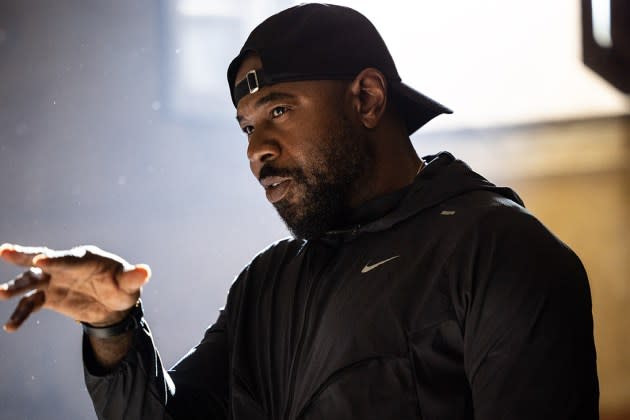
Wherever The Equalizer franchise goes, an audience has followed.
That was true for the original 1985-89 CBS TV series, and it’s especially true for Antoine Fuqua and Denzel Washington’s newly minted Equalizer trilogy. However, in the five years between The Equalizer 2 and today’s release of The Equalizer 3, a Queen Latifah-led Equalizer series has also come into its own on CBS, becoming one of the most-watched shows on television.
More from The Hollywood Reporter
Antoine Fuqua Sued by Former Consultant Over 'The Equalizer 3' Credit
'The Equalizer 3' Review: Denzel Washington Returns for More Numbingly Violent Vengeance
Rob Young, Oscar-Nominated Sound Mixer on 'Unforgiven,' Dies at 76
Now, one might assume that the success of the new show provided added reason for the brain trust behind the film series to pursue a proper end to their trilogy, but the reimagined show actually had no bearing on whether Fuqua and Washington finished the story of Robert McCall.
“We absolutely have no connection to that; it wasn’t even in [our] thinking, really,” Fuqua tells The Hollywood Reporter. “We just did one movie at a time, and it was the audience that made each film successful. So they wanted us to come back and do it again.”
Equalizer 3 takes place on the Amalfi Coast of Italy, as McCall has been taken in by a tight-knit community after a mission goes sideways. When he discovers that his new friends are being terrorized by an Italian mafia-type syndicate known as the Camorra, McCall and his trusty stopwatch just can’t let it go.
To capture the dark side of this village, Fuqua and his Oscar-winning DP Robert Richardson took a page out of their Emancipation playbook by desaturating the photography, with select images bordering on black and white. “[Emancipation] spilled over a bit. We enjoyed doing it that way,” Fuqua says.
Fuqua is also attached to an upcoming Michael Jackson biopic for Lionsgate, and the veteran director recently stated that he’ll be addressing “the good, the bad and the ugly” of the iconic pop singer’s life. But with the Jackson estate involved, it remains unclear just how far he’ll be able to go with regard to the many controversies, legal problems and accusations involving the late artist.
When asked if the Jackson biopic is his most intimidating project, Fuqua is seemingly unfazed by the notion.
“I’m really excited about doing the Michael Jackson movie, but it’s down the line,” Fuqua says. “I’ve got a ways to go before I even get into that. So I’m just focused on where I’m at right now.”
Below, during a recent conversation with THR, Fuqua also responds to tying the late Tony Scott as Washington’s most frequent director.
Well, from directing The Guilty inside a van, to the hurricane shutdown on Emancipation, and now promoting The Equalizer 3 by yourself, you’ve had a lot of strange days these last few years.
(Laughs.) It has been a strange few years, brother. For all of us.
Are you trying your best to take it all in stride?
Absolutely. What else are you going to do, man? These are champagne problems.
Has the van come in handy at all since The Guilty?
I actually used it on Emancipation. I had it down there with me in the swamps. I think it’s still down there.
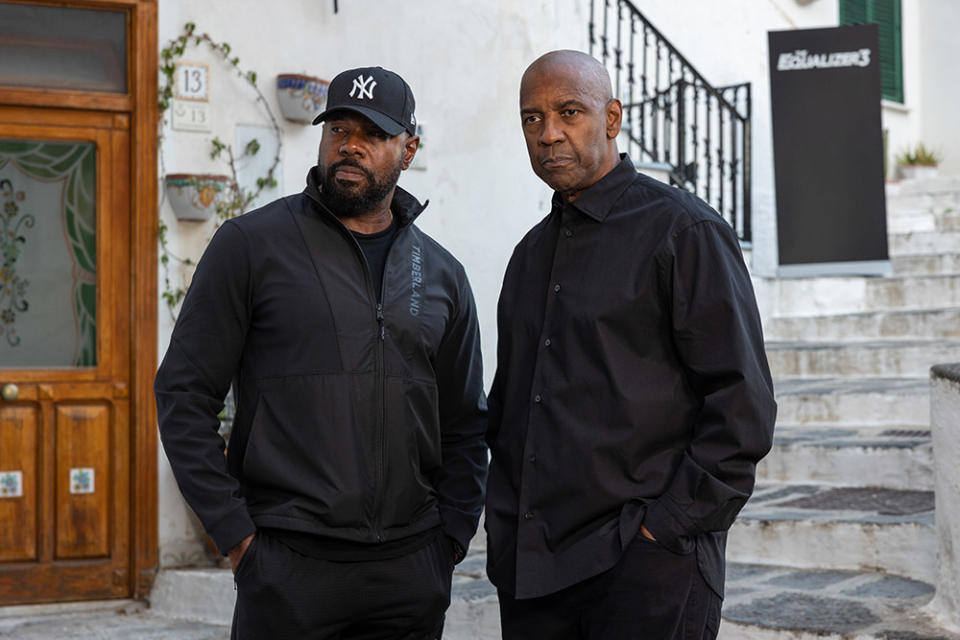
The Equalizer 3 is your fifth collaboration with Denzel, and you’re now tied with the late great Tony Scott as his most frequent collaborator. What goes through your mind when you hear that accomplishment?
I’m honored. I’m honored to be able to work with Denzel five times. He’s one of the greatest actors of our time, so I’m completely honored.
Tony Scott also paired Denzel and Dakota Fanning in Man on Fire. Who suggested their reunion on Equalizer 3?
It came from Dakota’s manager. She called Todd Black, the producer, and then Todd called me. So I had a meeting with Dakota, l loved her, and then I called Denzel to see how he felt. And he loved her, he loved the idea, and that’s how it all came about. It was exciting to see them come together.
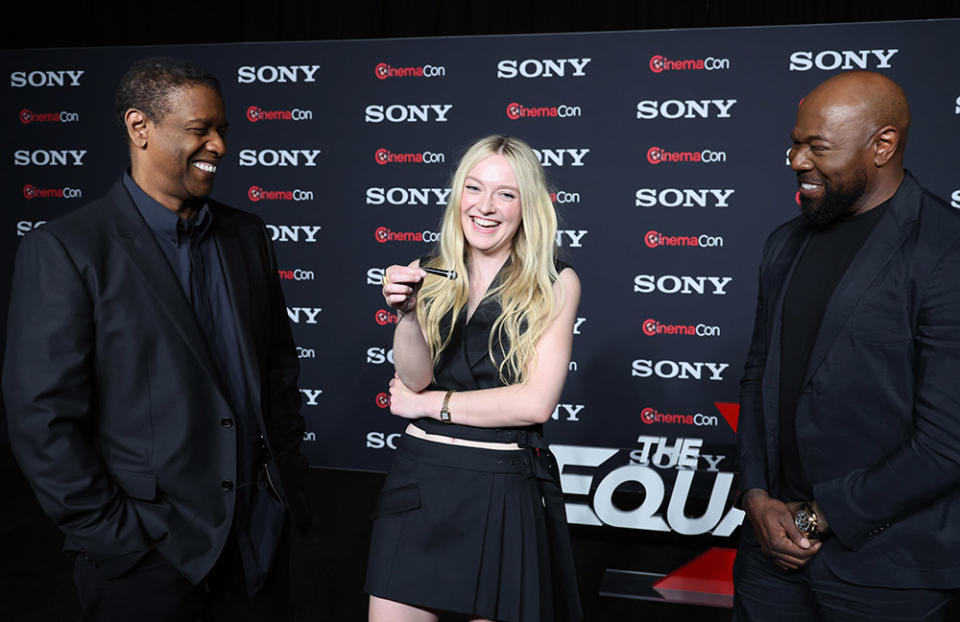
Did they reminisce at all on set? Could you tell that these were two people who had a history?
You could definitely tell they had history. They’re also friends. She’s friends with Denzel’s kids as well, so you could see the love between them. They would laugh and talk, and sometimes, he’d look over at me and say that he can’t believe she’s a grownup now. So it was a really good experience.
What do you remember about the first time you met Denzel?
He was intense. He was focused. He was a regular guy who was serious about his craft. So we sat and talked about Training Day, but we didn’t even talk about the movie for a while. We just talked about life.
When you eventually saw his first take as Alonzo on the Training Day set, did you have a pretty good sense that he was on his way to one of the all-time great performances?
I did. I really did. At the cafe with him and Ethan [Hawke], I felt the electricity in that room. It’s always fun for me to see Denzel for the first time as a new character. He always does something unexpected.
Given how popular the first two Equalizer movies are, I’m sure you guys were already planning to make a third film, but did the success of the new TV show give you all the more reason to move forward? I know you guys have nothing to do with it, but I can see executives viewing that as a positive indicator. Did it help?
No, not at all. We absolutely have no connection to that; it wasn’t even in [our] thinking, really. We just did one movie at a time, and it was the audience that made each film successful. So they wanted us to come back and do it again.
When did talks get serious?
[During the pandemic], Richard Wenk was commissioned to write a script for Sony, and then he gave it to Denzel and to me and the producers. And when we read it, we loved it. The idea of going to Italy, Denzel was in, so that’s when it got very serious.
You certainly picked a beautiful place to shoot the third movie, and I appreciated that Robert Richardson photographed the Amalfi Coast in such a way that illustrates the figurative shadow that hangs over this picturesque community. Some of the shots, especially toward the end, even border on black and white. Were the two of you expanding on what you learned from Emancipation’s palette?
A little bit, yeah. [Emancipation] spilled over a bit. We enjoyed doing it that way. We did all our stuff on the set, and then we got together with [colorist] Stefan Sonnenfeld at Company 3 to do some tweaking. But that look was set on the day.
John David Washington shot Tenet on the Amalfi Coast in 2019. Is it a complete coincidence that his father followed suit a few years later?
Yeah, total coincidence, but Denzel has been taking him there since he was a kid.
At this point in your relationship, can you anticipate when Denzel is going to respond well to a scene?
I don’t know. He just does the scene, and when we’re done with the scene, he walks away until we’re ready for him again. He doesn’t fall in love with one moment. It’s a collection of moments, really.
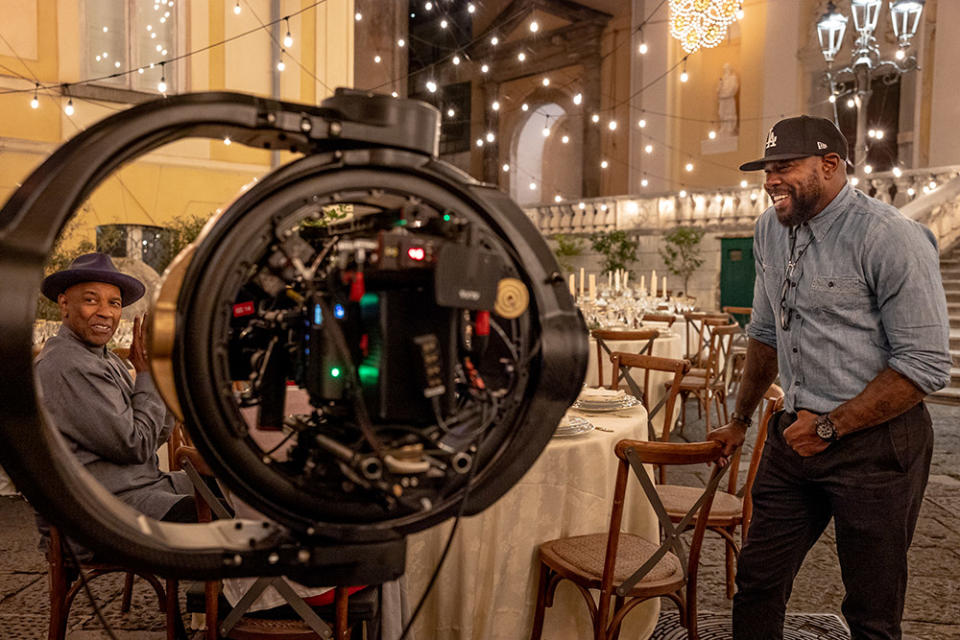
When we spoke for The Guilty, we talked about your shared experiences with Jake Gyllenhaal during Southpaw’s boxing training, as well as how you were both working in isolation on the Guilty set. Did you and Denzel have your own version of that on Equalizer 3? Did he make you wear the same hat as McCall?
(Laughs.) No, not at all. The shared experience was being in Italy together and experiencing the language, the place and the people. That was the shared experience.
As the trilogy capper, was there ever a version of this movie where you were going to check in with past characters like Ralphie the Security Guard (Johnny Skourtis) or Chloe Moretz’s character?
No, it was always going to be separate storylines altogether.
The central question of Equalizer 3 is whether Robert McCall is a good man or not. How do you see it?
Yeah, he’s a good man. It took him a while to get there, but he is a good man.
So the end justifies the means?
Absolutely. The end justifies the means. He did it for the right reasons.
Decades from now, when you’re reminiscing about the making of Equalizer 3, what day will you recall first?
Probably the last day and just saying goodbye to Robert McCall. Walking away from that is probably what I’ll remember.
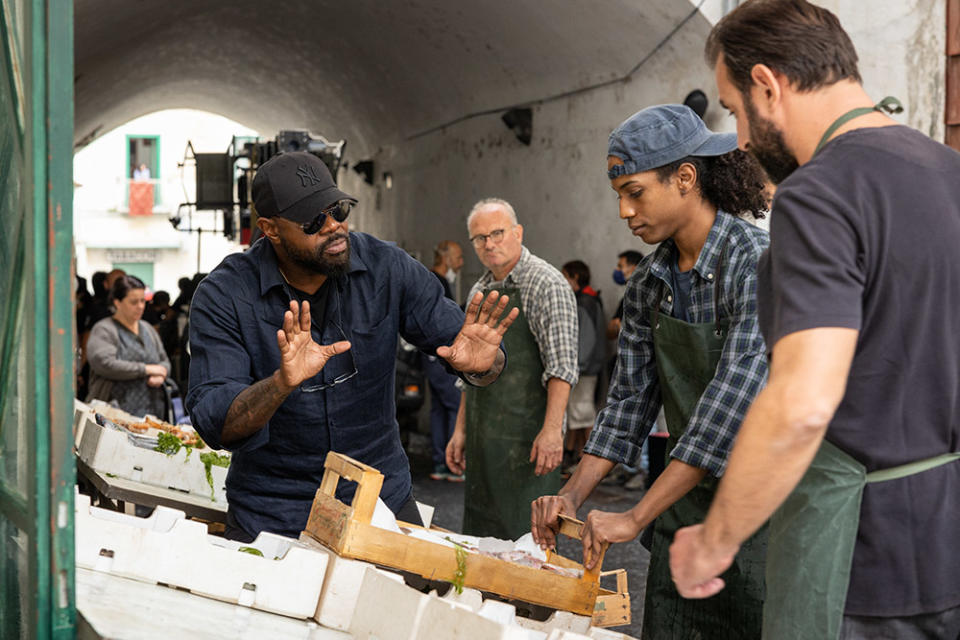
Of the new action sequences, which one put you through your paces?
It was probably the final scene. Shooting in the mansion and building those rooms — and then shooting on the streets of Naples in that weather — that was challenging. It’s hard to shoot there.
Overall, was the club sequence in the first movie still the most difficult set piece since it was the proper introduction to the vigilante side of the character?
It was difficult only because it was new. We were just getting the rhythm of McCall. But this last one was the most difficult one. The streets of Naples are tough, and you’ve got a guy who’s really crawling barefoot in a real city with cold weather. That was tough.
Has your action filmmaking evolved over the years? Do you approach it differently now?
Yeah, now it’s really more about the character and where he is emotionally and mentally. It’s about designing action, as opposed to just aesthetically doing it because it’s cool. So it’s really more about the character. It has to tell you something about the character.
Can you recognize a similar evolution in other aspects of the job like editing?
Definitely, yeah. It’s knowing what to focus on, what not to focus on. It’s just like an athlete. The game slows down a little bit for you. You know what’s important and what’s not at times. You can make those kinds of decisions, and you’re not as emotional when you’ve got to make some hard decisions about some things. You know what’s for the greater good of the picture now.
You’re involved with a wide variety of projects, not just scripted. Is there a rhyme or reason to it all?
Something has to move me. I’ve got to have a view of it. I’ve got to know what the ending is and what I’m trying to say before I start it. So there’s a reason behind anything that I’m doing. It’s speaking to me in some way. So, whether it’s a documentary or a film, I have a reason for telling the story.
Nic Pizzolatto co-wrote your Magnificent Seven movie. Do you expect to have any involvement in his upcoming Magnificent Seven series?
No involvement, but I think that’s cool.
You’re slated to direct a Michael Jackson biopic, and that’s a very complicated story to tell, especially with an estate involved. Is this the most intimidating project you’ve ever tackled?
I’m really excited about doing the Michael Jackson movie, but it’s down the line. I’ve got a ways to go before I even get into that. So I’m just focused on where I’m at right now.
Could something else end up in front of it?
I don’t know yet. It could be [next], but I’m not sure yet. With the strike and everything, everything is on hold.
***
The Equalizer 3 is now playing in movie theaters. This interview was edited for length and clarity.
Best of The Hollywood Reporter


